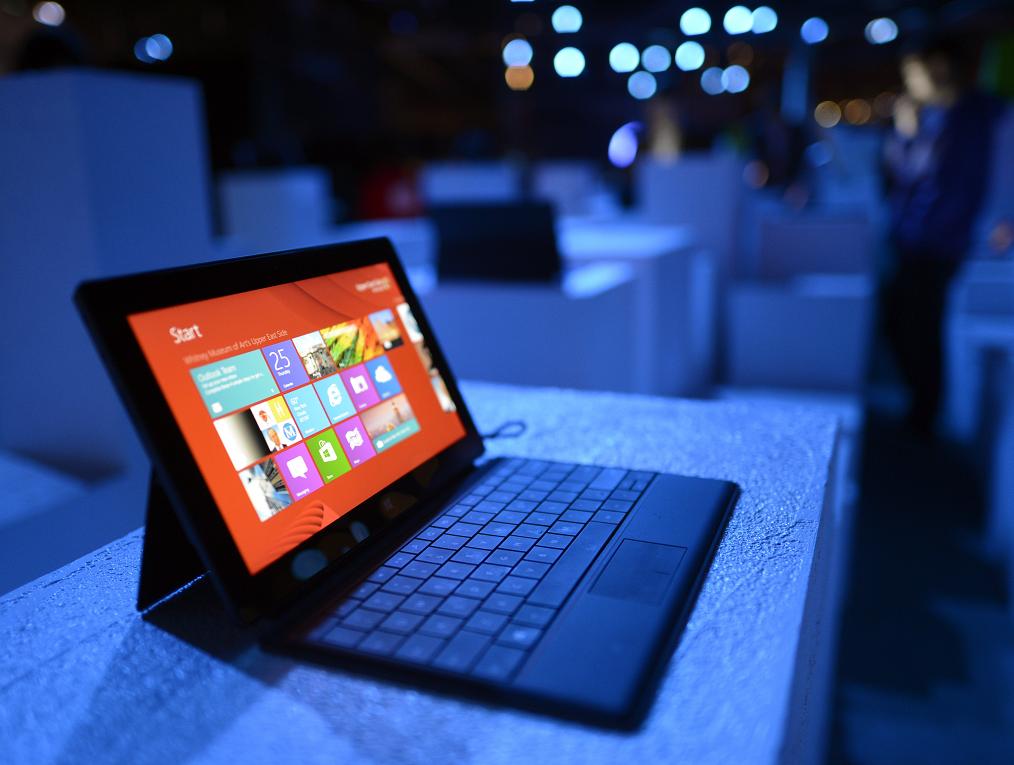New era for Microsoft as Surface tablet and Windows 8 go on sale

Your support helps us to tell the story
From reproductive rights to climate change to Big Tech, The Independent is on the ground when the story is developing. Whether it's investigating the financials of Elon Musk's pro-Trump PAC or producing our latest documentary, 'The A Word', which shines a light on the American women fighting for reproductive rights, we know how important it is to parse out the facts from the messaging.
At such a critical moment in US history, we need reporters on the ground. Your donation allows us to keep sending journalists to speak to both sides of the story.
The Independent is trusted by Americans across the entire political spectrum. And unlike many other quality news outlets, we choose not to lock Americans out of our reporting and analysis with paywalls. We believe quality journalism should be available to everyone, paid for by those who can afford it.
Your support makes all the difference.Microsoft embarked on a new era Friday as its two long-anticipated projects finally went on sale: a major overhaul of its operating system and a foray into hardware with a tablet computer.
It took years to get both on the shelves, and now Microsoft is waiting to see whether customers will bite. The firm set up temporary stores to get its products in front of more shoppers. There was even a "pop-up" store in Times Square for a major midnight launch Friday morning.
The products mark Microsoft's first steps at shifting its focus from the software that made it a technology giant to the hardware and services that it believes will carry it into the post-PC era.
With its tablet, the Surface, Microsoft is battling for a share of a market dominated by Apple's iPad. The iPad has about 60 per cent of the world's tablet market, but that is down from 80 per cent two years ago. Competing tablets running Google's Android system appear nearly every month.
Rhoda Alexander, an analyst for IHS iSuppli, said Microsoft's brand recognition may help it cut through the cluttered market. "Consumers stick to companies with which they already have a relationship," she said. "The first tendency is to initially gravitate toward brands that you know."
Microsoft is entering the market relatively late and has a lot of ground to make up. The company has not issued any sales estimates for the Surface and did not disclose how many were snapped up on its first day on the market.
Hopes remain high for the Surface tablet, which went on sale Friday after receiving mixed reviews. Reviewers praised the clean lines and solid build of the tablet, but found the software less appealing. The device doesn't support older versions of Windows software and only runs applications downloaded from the dedicated Windows Store.
With Windows 8, the stakes are even higher. Microsoft made bold changes in its operating system to make it more appealing to mobile users. The system is designed to work on traditional and mobile devices, and users can control the system by keyboard and mouse or, in some cases, by touch.
Making such radical changes to its central product could be a risky bet for Microsoft. Reviewers and early users have said its attempt to bridge the divide between new and old technology can be confusing to operate. Users may decide to stick with their current versions of Windows until Microsoft polishes more of the system's rough edges.
The Surface tablet starts at $499. Users can upgrade to Windows 8 for $40 online or order a disc for $70.
Join our commenting forum
Join thought-provoking conversations, follow other Independent readers and see their replies
Comments